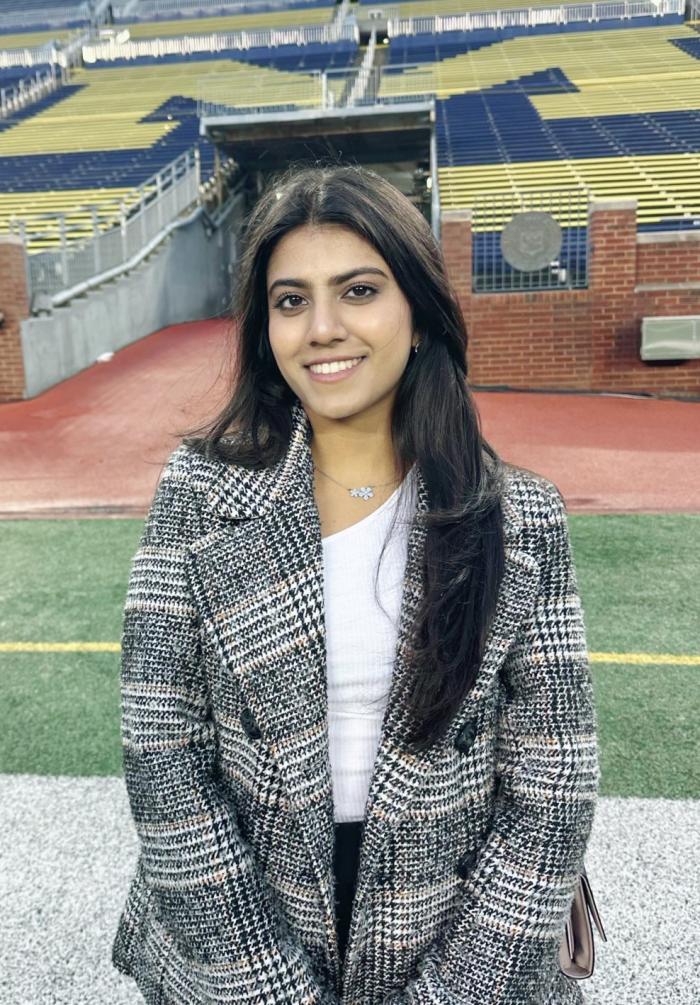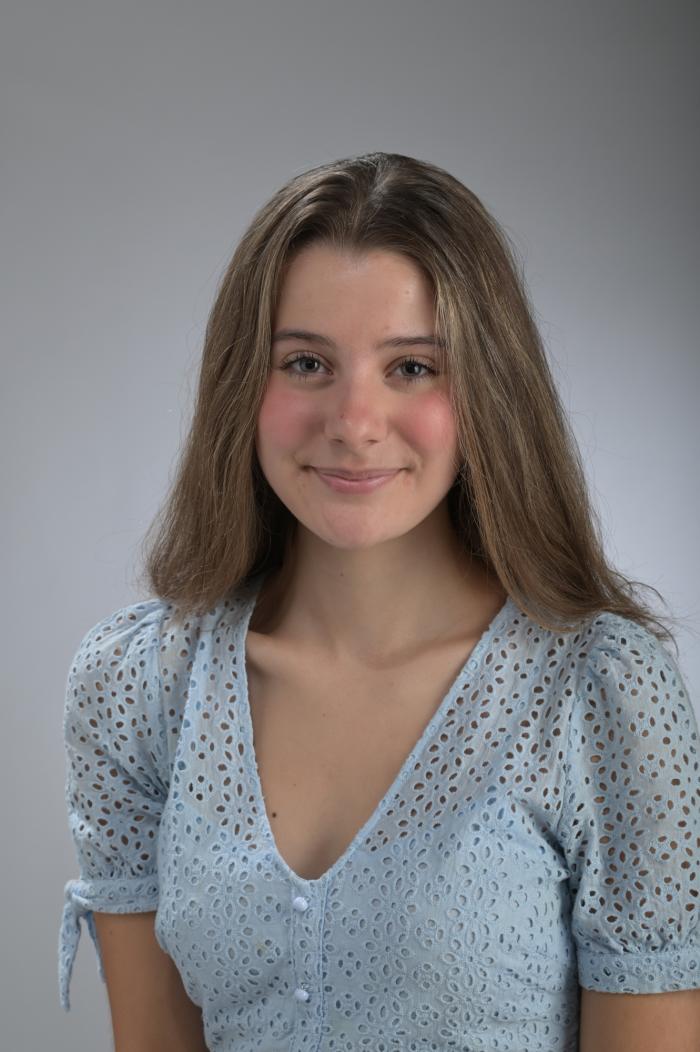2023-2024 Enosinian Scholars
Anthony Hu
School: Elliott School of International Affairs
Major: International Affairs
Project Description:
Should states support an international criminal justice regime—namely, the International Criminal Court (ICC)—if it perpetuates racialized hierarchies of humanity? The proposed research examines theories of global justice and race in practice, focusing on the moral dilemma states face in combatting impunity for international crimes through the ICC whilst confronting the ICC’s “Africa bias”—in which, until recently, the totality of the ICC’s defendants has been African or Arab African.
Chaitrali Patil*
School: Columbian College of Arts and Sciences
Major: Statistics and Biology
Project Description:
The chemical industry and its advancements have played an imperative role in driving sustainable development and contributing to a higher quality of life for people. However, as a result of the commercialization of hazardous chemicals, the industry has also become the primary contributor to our two current and intertwined environmental crises: climate change and chemical pollution. The industry possesses the means to rebuild a more innovative sector based on renewable and circular feedstock. To achieve such a desired change in developing next-generation chemicals that are high-performing, safe, and degradable, I plan to investigate and combat the disadvantages of pre-existing chemicals by creating a virtual repository of biobased chemicals from renewable feedstocks, which can be further valorized to derive new functional classes (e.g. pesticides, flame retardants or plasticizers). I will apply advanced statistical methods, computational chemistry tools, and machine learning to develop a diverse set of novel pesticides with tunable properties that are better performing and less harmful than existing pesticides. I will target the effect of pre-existing and newly developed chemicals on acetylcholinesterase inhibition, the most common endpoint of existing insecticides. Additionally, this project will leverage the principles of green chemistry to propose synthetic processes to develop these novel molecules in a sustainable and green manner, considering factors such as waster (e-factor) and atom economy (conversion efficiency).
Isabella Nieminen*
School: Elliott School of International Affairs
Major: International Affairs
Project Description:
How and to what extent have state-sponsored efforts to restrict civil society hindered transnational advocacy networks?
In what ways have both local civil society organizations (CSOs) and international organizations adapted their interactions to both combat and circumvent this restriction? A robust civil society is critical in divided and transitional societies, promoting democracy, reconciliation, and adherence to human rights norms. CSOs are effective in the form of transnational advocacy networks, characterized by channels of communication between local/national and international organizations. Today, CSOs and their networks face an existential threat: more than 120 laws since 2012 have been enacted that infringe on their right to express, associate, and assemble freely. Though this phenomenon is not limited by region, I will use Georgia as a case study, where collaboration with international foundations has promoted the increasing role of CSOs in anti-corruption and democratic advocacy. Using semi-structured interviews, my thesis will examine how Georgian CSOs have remained resilient in the face of governmental attempts to restrict this advocacy, and whether/to what extent transnational advocacy networks have played a role.
Peri Wivell*
School: Columbian College of Arts and Sciences
Major: Biology
Project Description:
My research involves studying the role of macrophage populations during development and in diseases of the prostate. Macrophages are specialized cells involved in a host of immune functions and have been known to play an important role in both pro- and anti- inflammatory responses. Benign Prostatic Hyperplasia (BPH) is a common diagnosis affecting the aging male population with increasing prevalence and although the disease has become progressively common, its cause and mechanism of progression remain poorly understood. Because BPH is a disorder influenced by inflammation and the origin of macrophages in the prostate has not been fully elucidated, understanding the recruitment of macrophage populations could lead to the development of more effective treatments and therapies than those which currently exist.
Priya Aravindhan*
School: Elliott School of International Affairs
Major: International Affairs and Anthropology
Project Description:
Pan-African revolutionary Amilcar Cabral wrote that “the people are only able to create and develop the liberation movement because they kept their culture alive… and because they continue to resist culturally even when their politico-military resistance is destroyed.”
Struggles for indigenous liberation and self-determination have become illegible to international liberal institutions which are predicated on the colonial notion of the nation-state. Kashmiris and Palestinians alike have become politically and militarily disempowered after their respective partitions in 1947 and 1948. Parallel are their movements of resistance against the settler-occupation regimes of India and Israel respectively. My thesis explores how Kashmiris and Palestinians use art to advance their struggles for liberation and to re-assert their agency as colonized subjects. Art serves as the most subversive medium through which these subjects can problematize hegemonic understandings of national belonging. Not only is it used to bring light to the violent conditions Kashmiris and Palestinians experience, art provides a source of resilience from the erasure of their cultural identity and the encroachment of their sovereignty. It gives the colonized masses a voice which cannot be offered to them by their oppressors (who justify their treatment of those masses by extending to them “minority rights” and “protections”). The process of creating art can materially resist occupation, such as the case of Palestinian artist Sliman Mansour who boycotted Israeli art supplies during the first Intifada, using materials like clay and coffee in their place. The work from Kashmiris is largely left out from mainstream discussions of post-colonial art and literature, likely due to stringent Indian censorship. My thesis seeks to uncover how Kashmiri and Palestinian artists alike conceive of their own sovereignty and how their resistance movements intersect and gain strength from one another.
*Member of the University Honors Program






